It’s not every day that you receive pictures from one of the world’s best cycling photographers – they’re way too good to keep to ourselves so with Mr. John Pierce’s permission allow us to share his memories of some of his favourite Six Day riders of the 70’s and 80’s.
John attended the last London Six in 1980 and these first images are from that race.
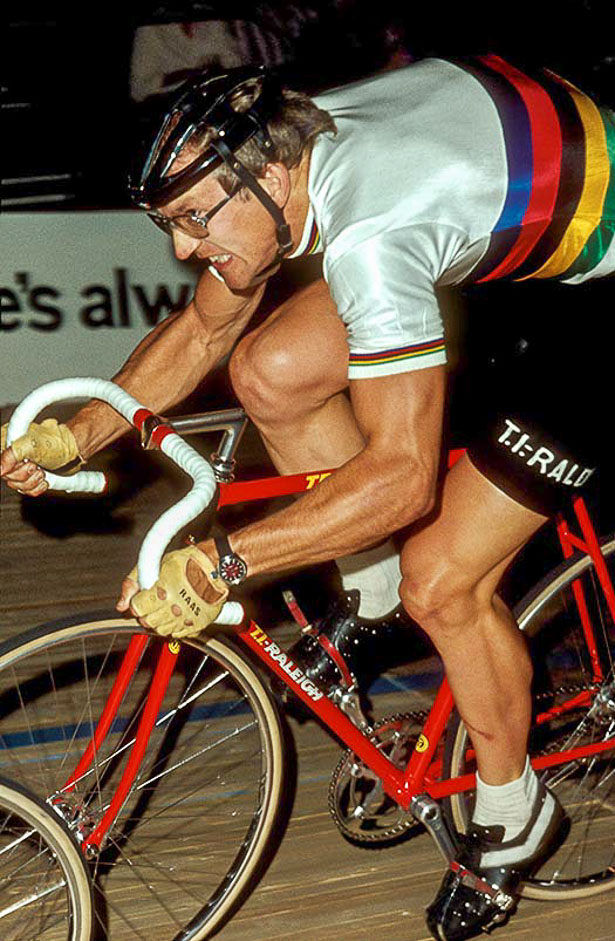
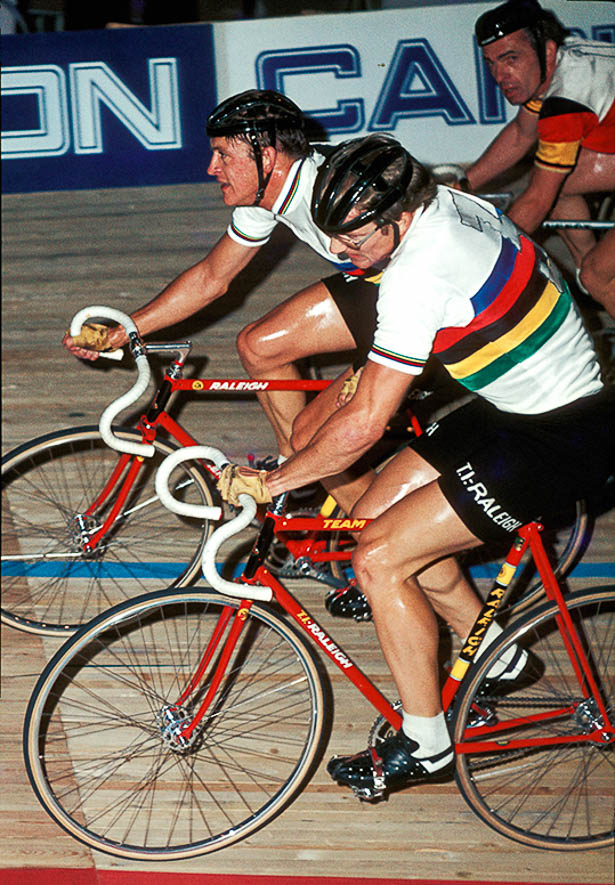
Raas rode with fellow Raleigh Dutchman, the late Gerrie Knetemann in the rainbow jerseys; ‘The Knet’ having earned the right to the rainbow bands on the Nurburgring in ’78 and Raas the following year at Valkenburg – incidentally that year saw Scotland’s Robert Millar 4th in the amateur race and would have been in the medals but for a pulled foot.
Raas rode 23 Six Days, winning just one, but it was all about contract fees back then – roadmen were on decent money but the Six Days were a lucrative ‘side line’ in an era when many professional contracts only ran for 10 months of the year.
Raas’s road palmarès are stunning: Worlds, Milan-Sanremo, Amstel x 5, Paris-Tours x 2, Paris-Brussels, Flanders x 2, Gent-Wevelgem, Het Volk, Paris-Roubaix and Dutch National Champion x 3.
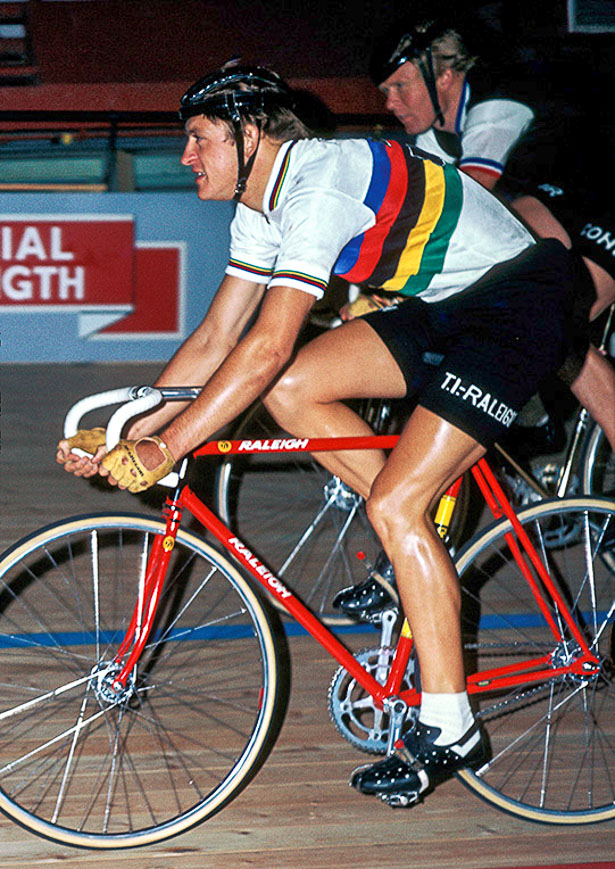
Knetemann’s palmarès aren’t quite so dazzling but with the Worlds, Amstel x2, Henninger Turm and a plethora of short stage race wins, he was one of the major stars of the era.
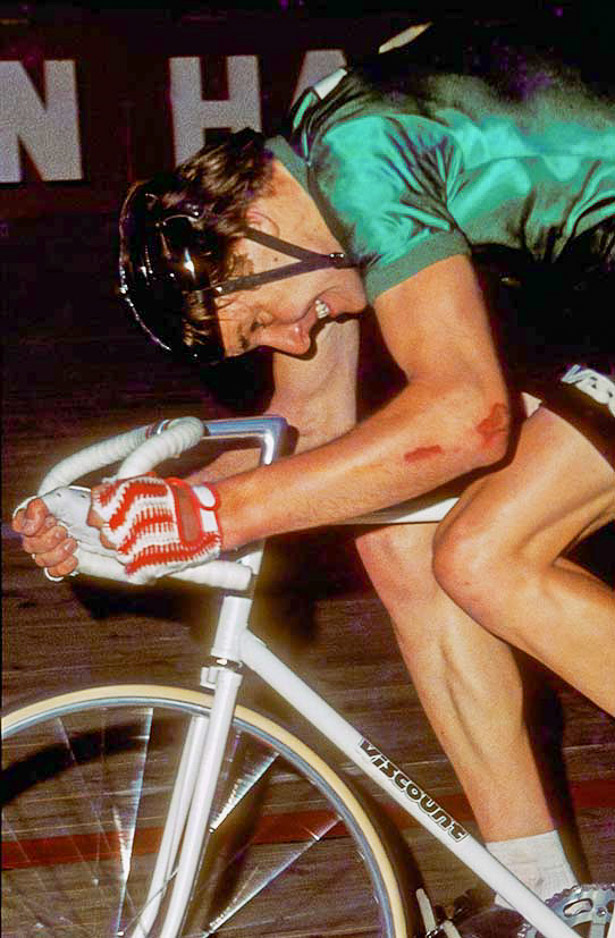
Britain’s most successful Six Day man with 23 wins off 139 starts.
Doyle would have enjoyed many more wins had the organisers paired him more frequently with Australian legend, Danny Clark but with just one English (which ceased in 1980) and no Aussie Six Days as bargaining chips the pair were often separated – nevertheless, their 19 wins off 35 starts makes them the third best pairing of all time.
The most successful pairing of all time was Bruno Risi & Kurt Betschart on 37 wins but that was off 130 starts with Gustav Kilian & Heinz Vopel on 29 wins off 48 starts.
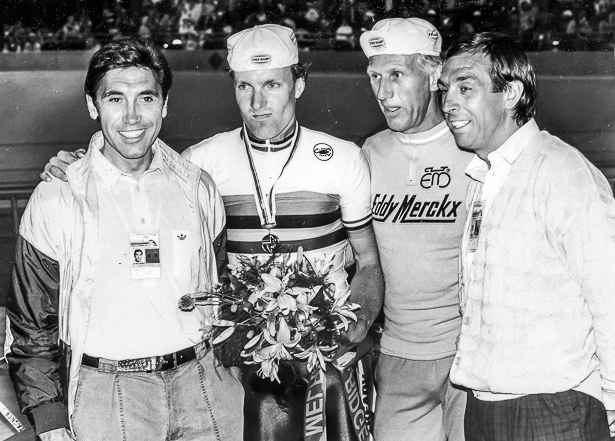
Doyle was also twice World Pursuit Champion (it should have been three, you can read about it here) and also took three silvers and a bronze at the discipline.
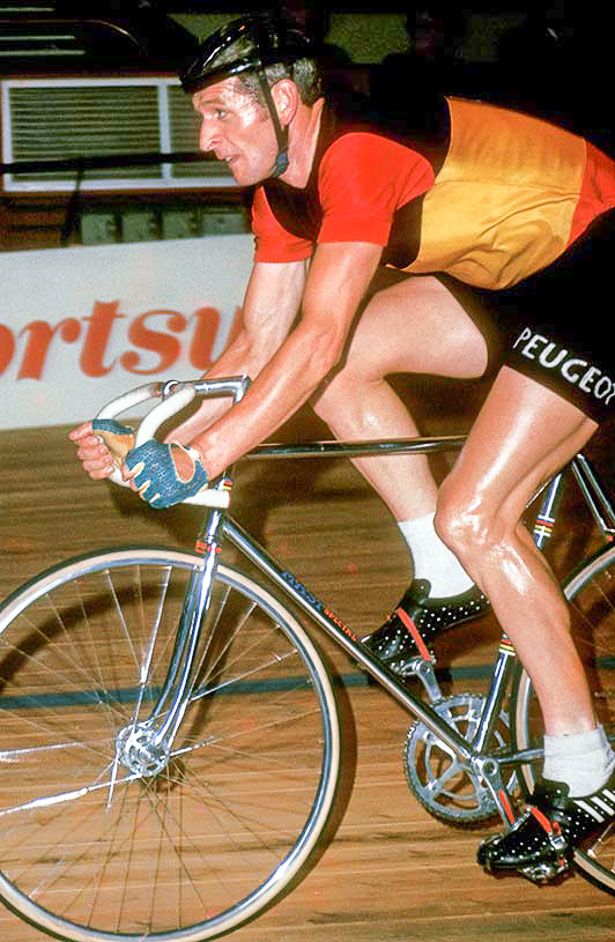
A true ‘chronoman’ slim and stylish; a joy to behold on a track or time trial bike, Ferdi Bracke won three Sixes off 51 starts and was twice World Pursuit champion; his chrono honours include the Gran Prix des Nations and Lugano and Barrachi Trophy twice, with Peugeot team mate, Eddy Merckx.
He was world hour record holder and a Grand Tour winner – the Vuelta in 1971, with many saying he should have won the Tour de France in 1968, if he’d used his talent against the watch to best effect.
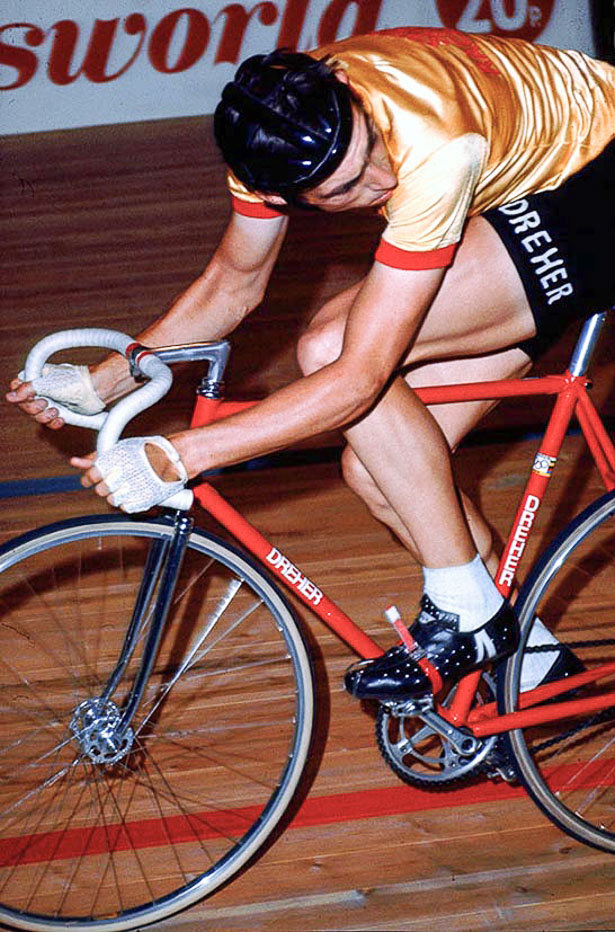
Sercu’s father was a top rider before him and from childhood young Patrick was being groomed for stardom.
Olympic kilometre champion, World Amateur and Professional Sprint Champion, European Sprint, Omnium, Derny and Madison Champion; he won a total of 59 official championship titles during his career – from Olympic to Belgian.
And he set multiple world records over 500 and 1000 metres.
But this was also a man who could win Kuurne-Brussels-Kuurne, the Championship of Flanders, Giro and Tour stages and wear the green jersey into Paris.
He won 88 Six Days off 223 starts – Danny Clark is ‘starts recordman’ on 235 – and is part of two of the most successful Six Day pairings of all time; 15 wins from 28 starts with Eddy Merckx and 14 wins off just 21 starts with Peter Post.
Unquestionably one of the greatest bike riders ever to live.
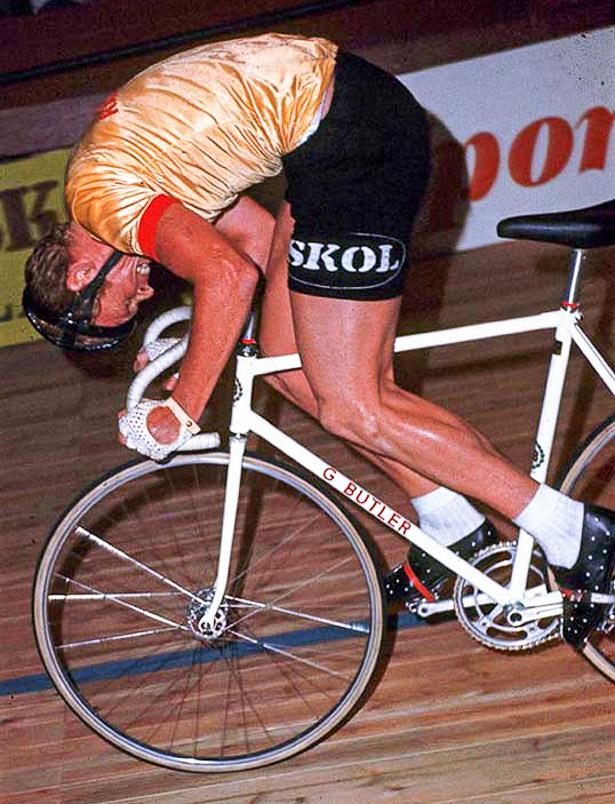
I’ve always wanted to interview Tony Gowland as Britain’s ‘other’ Six Day star of the 70’s and 80’s with two wins – London (Sercu) and Montreal (Motta) – off 31 starts with only Maurice Burton on 46 rides and Doyle (139) having ridden more.
I have his phone number but the trouble is that the guy who gave me it is so frightened of Old Tone that I haven’t to say where I got it and I’ve been warned that the first thing the man with the flaming red hair will say is; ‘Who gave you this number?’
Maybe one day I’ll pluck up the courage…
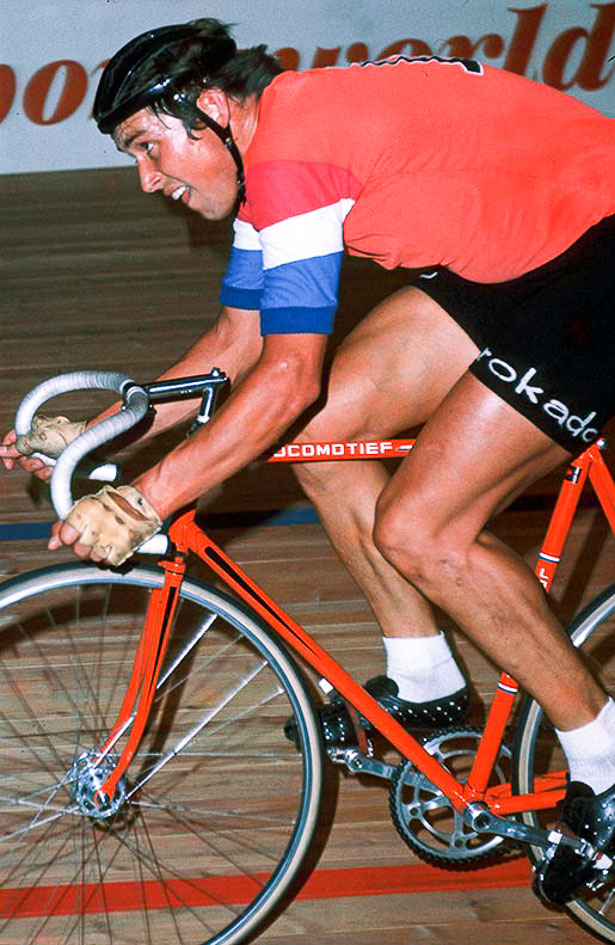
They don’t make ‘em like Gerben anymore.
A ‘clown prince’ – but some say he “was just off his head” – Karstens with a gorilla mask in the Tour, Karstens playing possum on the road in the Tour and Karstens riding the wrong way round a Six Day track…
Despite the nonsense he was a very talented rider with the 1964 Olympic TTT title the highlight of his amateur career.
He won stages in all three Grand Tours as a professional, was Netherlands National Champion, won Paris-Tours twice and the GP Fourmies not to mention podiums in Gent-Wevelgem, Lombardy, Milan-Sanremo and the Amstel.
He won two Six Days off 72 starts, both with countryman Leo Duyndam – London in ’73 and Rotterdam in ’75.
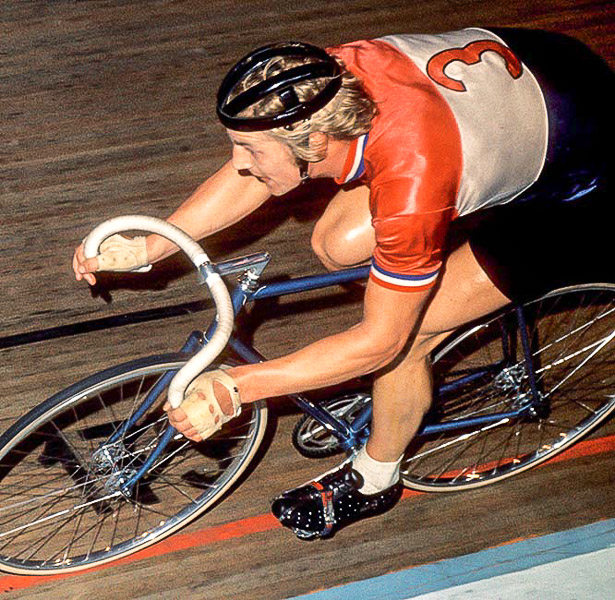
Leo Duyndam was Karstens’ partner to the win in 1973 and another man with a good line in patter, unfortunately no longer with us, the big strong man with the blond mop died at just 42 in 1990; he was one of the top Six Day men of the era with 16 wins off 72 starts.
He was a brilliant amateur with a stage win in the Tour de L’Avenir to his credit, as a professional he won the Tour of Limburg and had stage wins in Paris-Nice and Tour de France not to mention numerous Dutch national track championships.
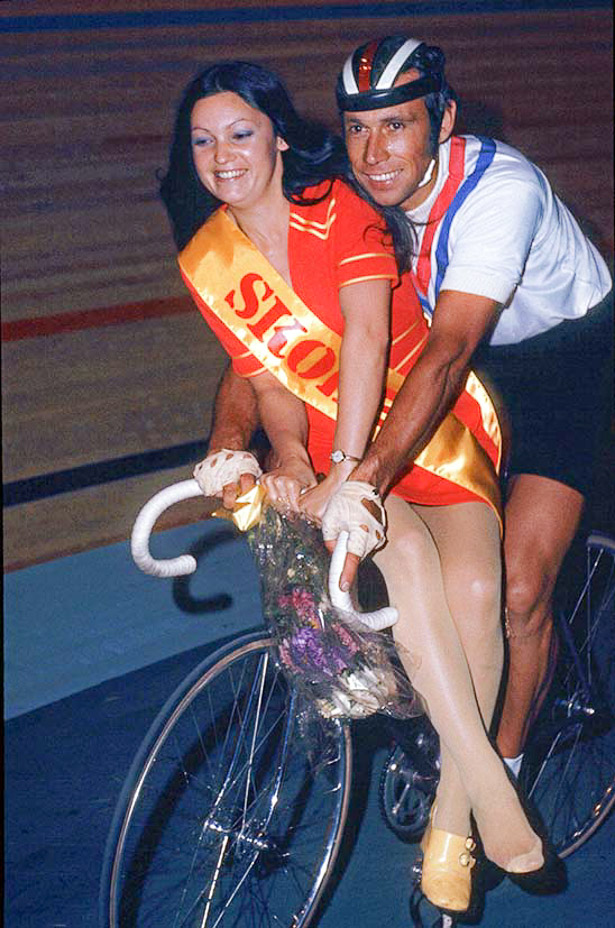
It’s hard to imagine just how how damn cool Barry Hoban was, the colour of teak, that piano key smile, immaculate in clothing and machine – he looked the biz on that Masi.
Everyone is aware of his eight Tour stage wins and his Gent-Wevelgem win but there was also Henninger Turm, GP Fourmies, Paris-Bourges, Vuelta stage wins and podiums in Paris-Tours, Paris-Roubaix, Liege-Bastogne-Liege and the Midi Libéré.
Barry didn’t make a science of the Sixes but was a proficient track rider with a British amateur pursuit title to his name.
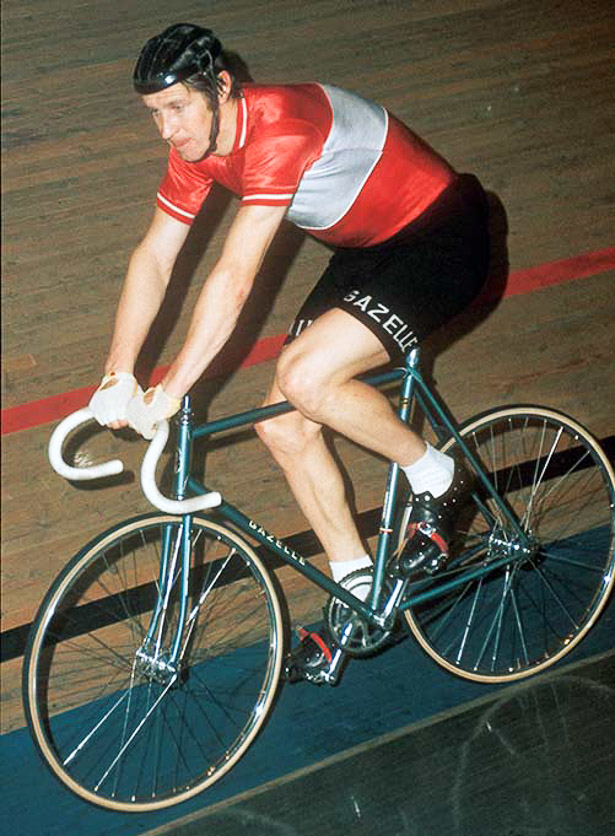
Before the ‘Flemish Arrow’ that was Patrick Sercu there was ‘the Kaiser’ – Peter Post. For a full review of the man’s career you can read our obituary, but to dwell on his Six Day career for a moment; he’s fourth on the all-time winners list on 65 behind Sercu on 88, Clark on 74 and Pijnen on 72.
But in terms of rides he’s way down the list with ‘only’ 155 rides compared to Sercu’s 223, Clark’s 235 and Pijnen’s 233.
He appears three times in the list of all time great teams: 19 with Fritz Pfenninger, 14 with Patrick Sercu and 10 with Rik Van Looy.
He was the unchallenged driver of the Blue Train, the elite group of riders who controlled the Sixes – you didn’t mess with Post.
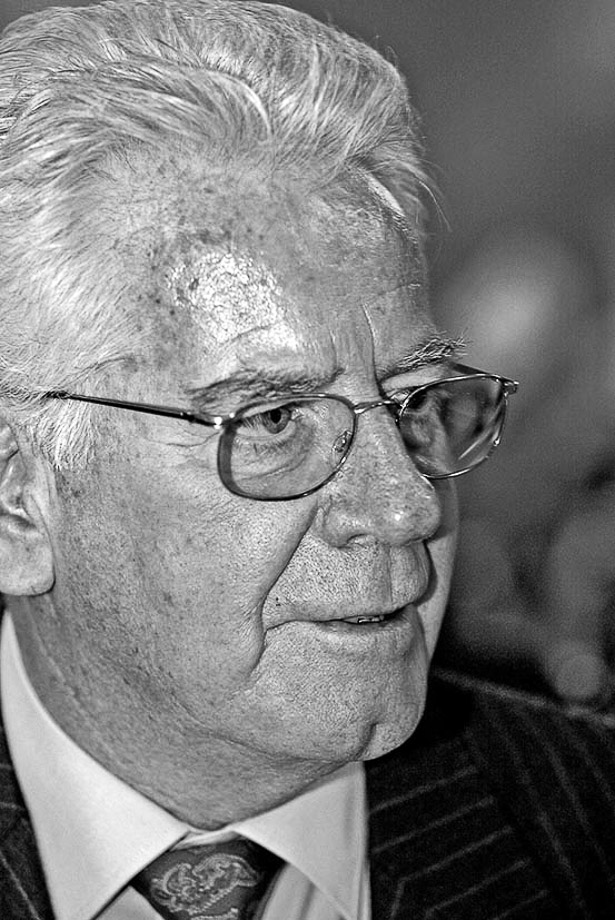
And no piece about the Skol Six Day is complete without mention of Ron Webb.
Webb was an Australian who came over to race in Europe, didn’t go home and is now one of the world’s premier track builders – he built the London Olympic track.
He promoted the Skol Six for 12 years and was the first to see the way the wind was blowing and come away from the ‘at least one man constantly on the boards for six days’ formula.
His race was based around snappy evening sessions with no ‘watching paint dry’ tedium – the other organisers scoffed but within a season or two the whole Six Day world had followed suit
And finally we just had to ask Mr. Pierce; ‘Who’s your favourite Six Day rider?’
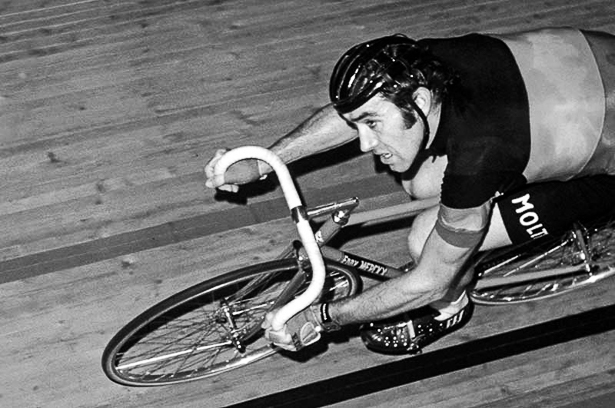
“Instantly my head said Merckx.
“Then I thought, you said ‘Six Day rider’ – meaning a track rider.
“So then my head said Danny Clark.”
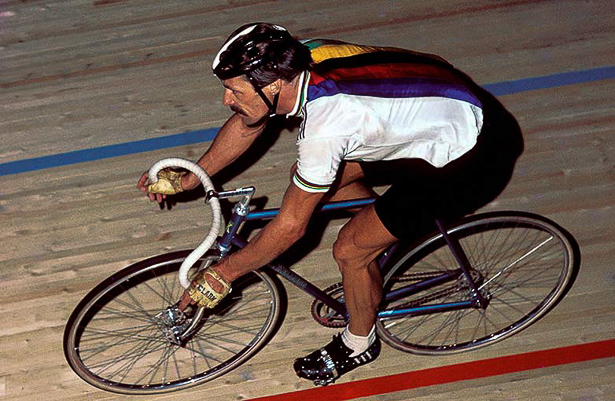
“As a rider he was compact, low, but strong and a little broad. (Like Charles Bronson on a bike).
“Danny was super-fast, he was controlling, always in command, and he won 74 Six Days.
“After he retired Clark came back to drive the Dernys and during this time he was also musically skilled enough to get up on stage with Suzie Quatro who was performing in the track centre at a Six Day and play guitar and join in the singing.”
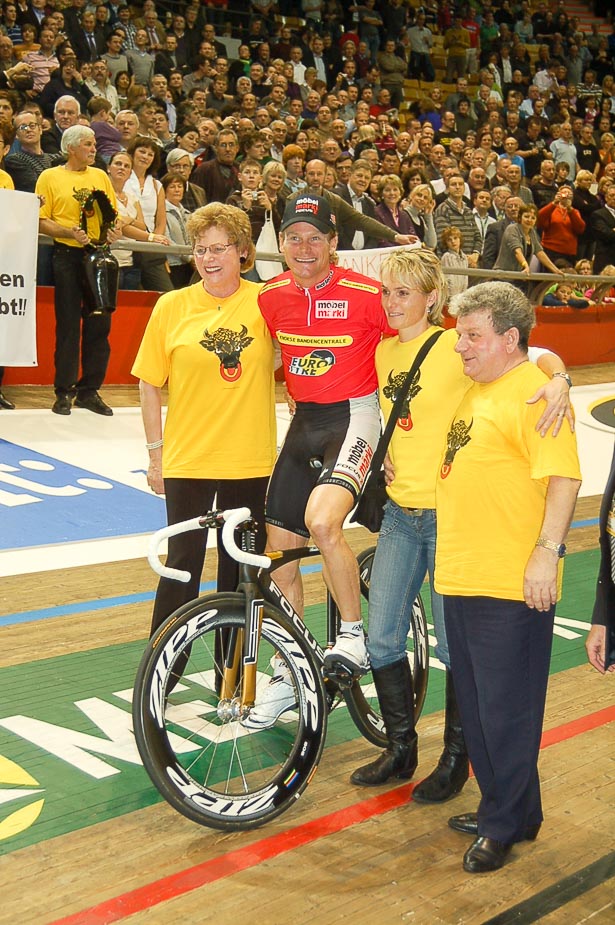
“There are other obvious riders – like Bruno Risi, he suffered from knee problems but was similar to Clark in style.
“Sercu was supreme, but devoid of emotion or charisma – but on a bike; he was like an arrow. (his nickname was the Flemish Arrow).
“He performed in London out of the saddle with his nose on the front tyre; he rode rings around the rest he was so fast.”
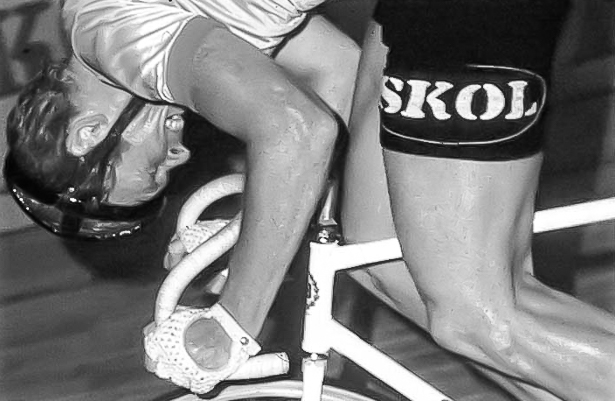
“Sercu dragged Tony Gowland to the win. Gowland was good, but what he lacked Sercu had a-plenty.
“I go back a long way, so I can remember Roger De Vlaeminck chasing Willy Debosscher around the top of the banking in Gent THE WRONG WAY AROUND – very, very difficult to ride like this.
“Also in the Devil, I saw Debosscher pull De Vlaeminck’s shorts down over his saddle so he would be eliminated.
“He also rode with a whistle – like he was policing the event.
“Finally, roadmen ride differently on the track from track riders. Roadmen like to be at the front, always looking for clear air. Track riders have a subconscious pacemaker in their head and can ‘feel’ the other riders around them better.
“My answer then; DANNY CLARK.”
We have more of John’s great pictures to come – stay tuned and ‘thank you’ again to John for sharing so many of his great shots with us.



